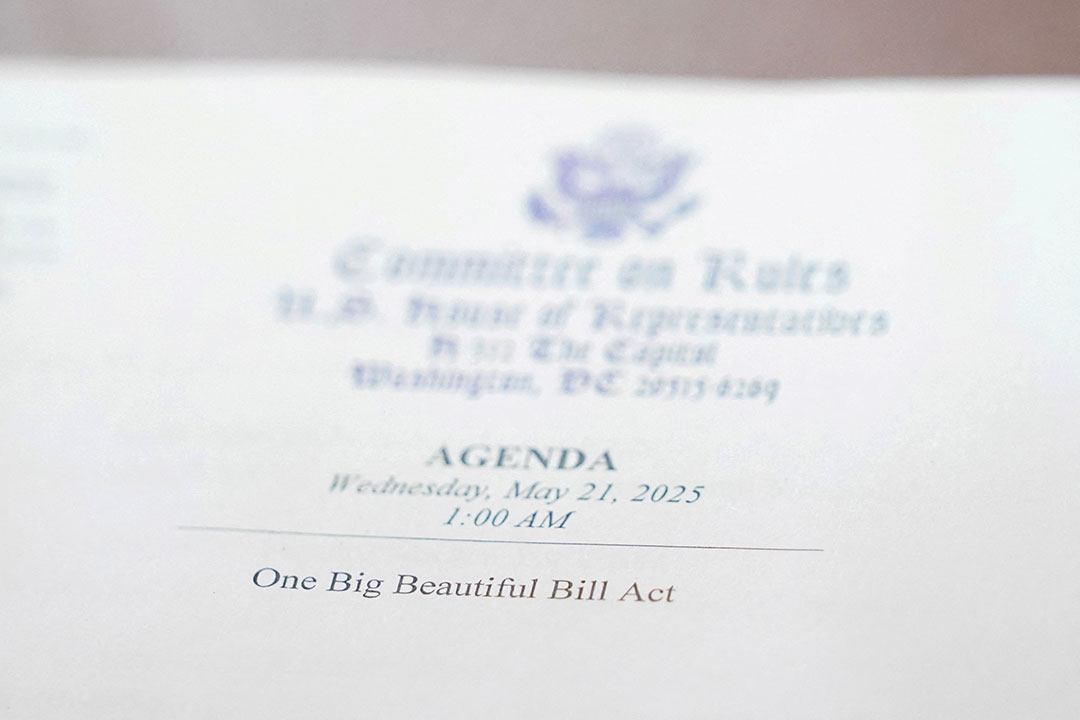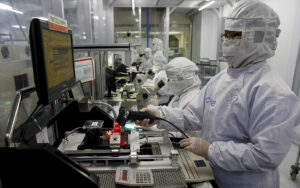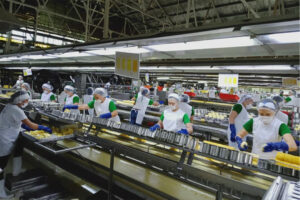
EV stakeholders told to brace for impact of ‘One Big Beautiful Bill’

By Justine Irish D. Tabile, Reporter
THE DEPARTMENT of Trade and Industry (DTI) on Wednesday warned that the Trump administration’s “One Big Beautiful Bill (BBB) Act” may have a negative impact on Philippine enterprises involved in electric vehicle manufacturing and supply-chain operations.
The US Senate on Tuesday approved the massive tax cut and spending bill by the narrowest of margins, advancing a package that would slash taxes, reduce social safety net programs and boost military and immigration enforcement spending while adding $3.3 trillion to the national debt. (Related story: “Trump risks voter blowback as ‘One Big Beautiful Bill’ advances”)
The legislation now heads to the House of Representatives for possible final approval. US President Donald J. Trump has said he wants to sign it into law by the July 4 Independence Day holiday.
“Noting that the Philippines is part of the electric vehicle (EV) supply chain, the BBB’s proposed changes may have an effect on the demand for the country’s green metals that feed into the EV supply chain in the US,” DTI said.
The US measure includes provisions terminating federal tax credits for new and used electric vehicles and restricting the eligibility for clean vehicle tax incentives.
“The DTI advises all relevant industries and stakeholders — particularly those involved in EV manufacturing, supply-chain operations, and financial services — to consider conducting an early assessment of potential impacts and prepare appropriate risk mitigation strategies,” it added.
The DTI cited Section 112002 of the House-approved version of the bill, which will terminate the tax credit of up to $7,500 that US taxpayers can claim for electric vans, sport utility vehicles, and pickup trucks with a manufacturer’s suggested retail price of $80,000.
“The tax credit is set to expire on Dec. 31, 2032. However, if BBB is passed, the incentive will be terminated by Dec. 31. Further, only manufacturers that have not sold 200,000 units of new clean vehicles can qualify for the tax credit,” it added.
The BBB will also remove the tax credit of up to $7,500 that can be claimed for clean commercial vehicles that were placed in service within the year.
Under Section 112003 of the BBB, the incentive will expire this year, with only clean commercial vehicles ordered or purchased before the expiration eligible for the credit.
Rizal Commercial Banking Corp. Chief Economist Michael L. Ricafort said the proposed removal of the incentives on EVs could impact global supply chains.
“This could slow down sales and demand for EVs in the US and would have an adverse impact on global supply chains, including those in the Philippines, which are suppliers or exporters of parts and components for these EVs,” he said in a Viber message.
However, he said that the law could also “lead to some increase in demand for internal combustion engine vehicles.”
“That could benefit supply chains worldwide, including suppliers from the Philippines,” he added.
Meanwhile, Philippine Institute for Development Studies Senior Research Fellow John Paolo R. Rivera said the proposed BBB Act may “have indirect but strategic implications” for the Philippines.
“As the US aims to reduce reliance on China and secure its biotech supply chains, it could redirect investments and sourcing to allied countries like the Philippines through friendshoring strategies,” he said in a Viber message.
“Key Philippine sectors that may benefit include electronics, information technology-enabled services, pharma support services and chemical manufacturing,” he added.
However, he said the country should strengthen its value chain, regulatory standards and investment incentives to take advantage of opportunities.
“On the flip side, if the act leads to tighter tech and intellectual property controls, it could also limit Philippine firms’ access to certain US-led biotech partnerships or funding,” he said.
“Policy readiness, talent development, and deeper US-Philippines economic cooperation will be critical to maximize gains,” he added. — with Reuters



